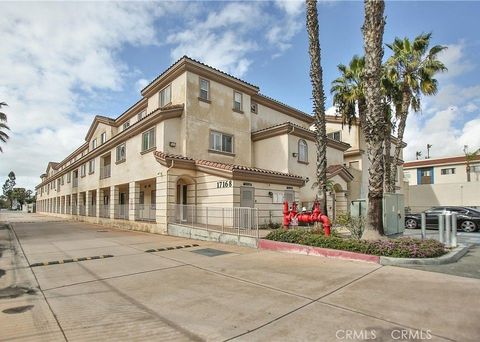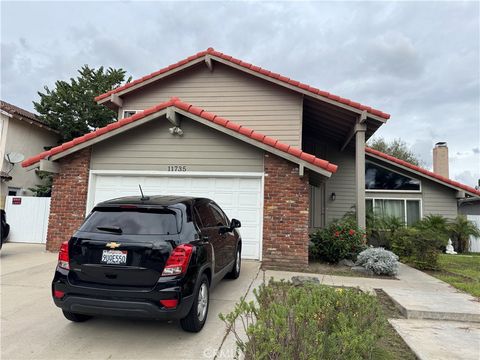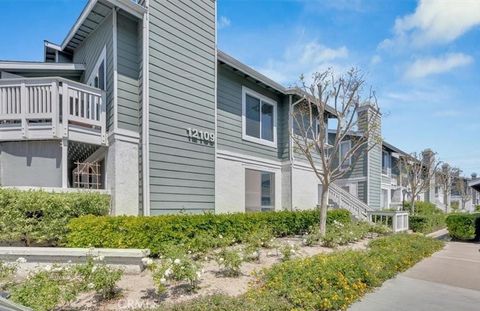How to buy a home in Orange County in 2026. Explore Orange County housing market trends, price changes, and expert insights for buyers, sellers, and investors across all major OC cities. Call Stovall Team today 714.343.9294. I am seeing a lot of buyers stuck in “wait and see” mode right now. They’re watching rates hover a little above 6% and thinking, I’ll buy once they hit the 5s. Because who doesn’t want a better rate?
But here’s the thing: that 5.99% number might not save you as much as you think. Most of us don’t think twice about spending a few dollars on a cup of coffee at our favorite local coffee shop. But what if you invested the same amount in your home?
I know that affordability is a challenge. There’s no question about that. But the market has given savvy buyers a head start. Mortgage rates have already come down over the past few months. And the drop we’ve seen saves you more than you’d think.

How Much You’ve Already Saved, Without Realizing It
Let’s put some real numbers to it. Rates peaked for the year in May when they inched above 7%. But since then, they’ve been slowly declining. Now, they’re sitting in the low 6s. And while that may not sound like a big deal, that change translates to real dollars.
According to data coming out of Redfin, the typical monthly payment on a $800,000 home is already down almost $800 since May.
That means if you’re buying a home now, you’re saving hundreds of dollars every month compared to what you would have been able to get earlier this spring. That’s real money that makes a real difference for buyers who paused their plans because they thought homeownership was out of reach.
And while it may be tempting to wait even longer to see bigger savings, that’s a gamble that could cost you. Here’s why.
Where Experts Say Rates Are Headed
For starters, most experts say mortgage rates are likely to stay pretty much where we are today throughout 2026. So, there’s no guarantee we’ll see a rate much lower than what we have now. Only one expert forecaster is saying rates could fall into the upper 5s next year (see graph below):
And even if rates do dip below 6%, the extra savings you’re holding out for won’t move the needle as much as you might expect.
The Real Math Behind a 5.99% Rate
Let’s break it down. If rates come down to 5.99% from where they’ve been lately that’s a difference of only about $100 a month on an average priced home – give or take a bit based on your price point and the rate your lender quotes you (see chart below):
Eighty dollars. That’s it. And for the typical family, that’s about one dinner out (or one dinner in, if you have it delivered). That’s not enough to change the game for most buyers. But the savings of nearly $400 we already have compared to when you paused your search in the spring? That might be.
So, the question to ask yourself is this:
Is an extra $100 savings really worth the wait?
Because while you’re holding out for that small dip, the bigger opportunity might be slipping away.
When Rates Fall, Competition Follows
Right now, you have more homes to choose from, sellers who are ready to negotiate to get a deal done, and fewer buyers to compete with. But once rates fall below 6%, buyer mindsets will shift and all of that will change.
The National Association of Realtors (NAR) reports that if rates hit 6%, about 5.5 million more households will be able to afford the median-priced home. Even if only a small fraction of them decide to buy, that could mean hundreds of thousands of buyers getting back into the market.
That creates more competition for you, which would push home prices even higher – maybe high enough to cancel out the extra savings you waited for.
So, if you’re waiting for rates below 6%, just keep in mind… that extra $80 may not be worth it in the grand scheme of things.
Bottom Line
You don’t have to wait for 5.99%. You have the chance to move (and save) right now. So, ask yourself: Would you let $100 hold you back from buying a home?
If you find a home you love and the math makes sense, getting ahead may be the best strategy. Connect with an agent or lender to run your numbers. That way you can see what you’re working with in your market.












Selling Your Parent’s Home: A Complete Guide Stovall Team
Selling a parent’s home is more than just a real estate transaction—it’s an emotional journey. Whether your parents are downsizing, moving closer to family, or transitioning to a senior living community, careful planning is key to a smooth sale. This guide will walk you through every step of the process, helping families in Orange County make informed decisions while maximizing value.
Selling a parent’s home is often more than a real estate transaction—it’s a delicate process that combines financial decisions with emotional considerations. Choosing the right realtor can make all the difference, ensuring the sale goes smoothly while preserving your family’s peace of mind.
This guide will walk you through how to select a trustworthy, experienced realtor who understands the unique challenges of selling a parent’s home.
1. Look for Experience with Senior or Inherited Properties
Not all realtors have experience handling homes for seniors or inherited properties. These sales can involve:
Choose a realtor who has successfully handled similar sales, understands the sensitivity, and knows how to guide families through complex transactions.
2. Check Local Market Knowledge
A realtor familiar with the local Orange County market will know:
Local expertise helps you price the home accurately, avoid prolonged time on the market, and sell for top dollar.
3. Ask About Marketing Strategies
Selling a parent’s home often requires professional marketing to reach the right buyers quickly. When interviewing potential realtors, ask:
The right realtor will have a proven marketing plan tailored to your property.
4. Evaluate Communication and Responsiveness
Selling a parent’s home can involve quick decisions and multiple stakeholders. Your realtor should:
Good communication reduces stress and helps the family feel in control of the process.
5. Check References and Reviews
Ask for client references and read online reviews. Look for a realtor who:
References can give insight into a realtor’s integrity, professionalism, and negotiation skills.
6. Consider Staging and Home Preparation Support
The right realtor will guide you through home preparation, including:
These steps can help the home sell faster and for a higher price.
7. Look for Negotiation Skills
Your realtor should be a skilled negotiator who can:
Negotiation experience is especially important in competitive markets like Orange County.
8. Verify Licensing and Professional Credentials
Always confirm your realtor:
This ensures your transaction is legally sound and professionally managed.
9. Trust Your Instincts
Finally, trust your gut. Selling a parent’s home is often emotional—choose a realtor you feel comfortable with, who listens, and who demonstrates empathy. The right fit will make the process smoother and less stressful for the whole family.
Conclusion
Choosing the right realtor is one of the most important decisions when selling your parent’s home. Look for someone with:
The Stovall Team and Micah Stovall specialize in helping families in Orange County sell their homes with care, professionalism, and experience you can trust.
Contact us today to learn how we can guide your family through this important transition
Selling a parent’s home in Orange County can be complex, but with careful planning, the right professional guidance, and a clear strategy, it can also be a smooth and rewarding experience.
Ready to get started? Contact the Stovall Team and Micah Stovall, 714.343.9294 your trusted Orange County real estate experts, for guidance every step of the way. Experience you can trust.